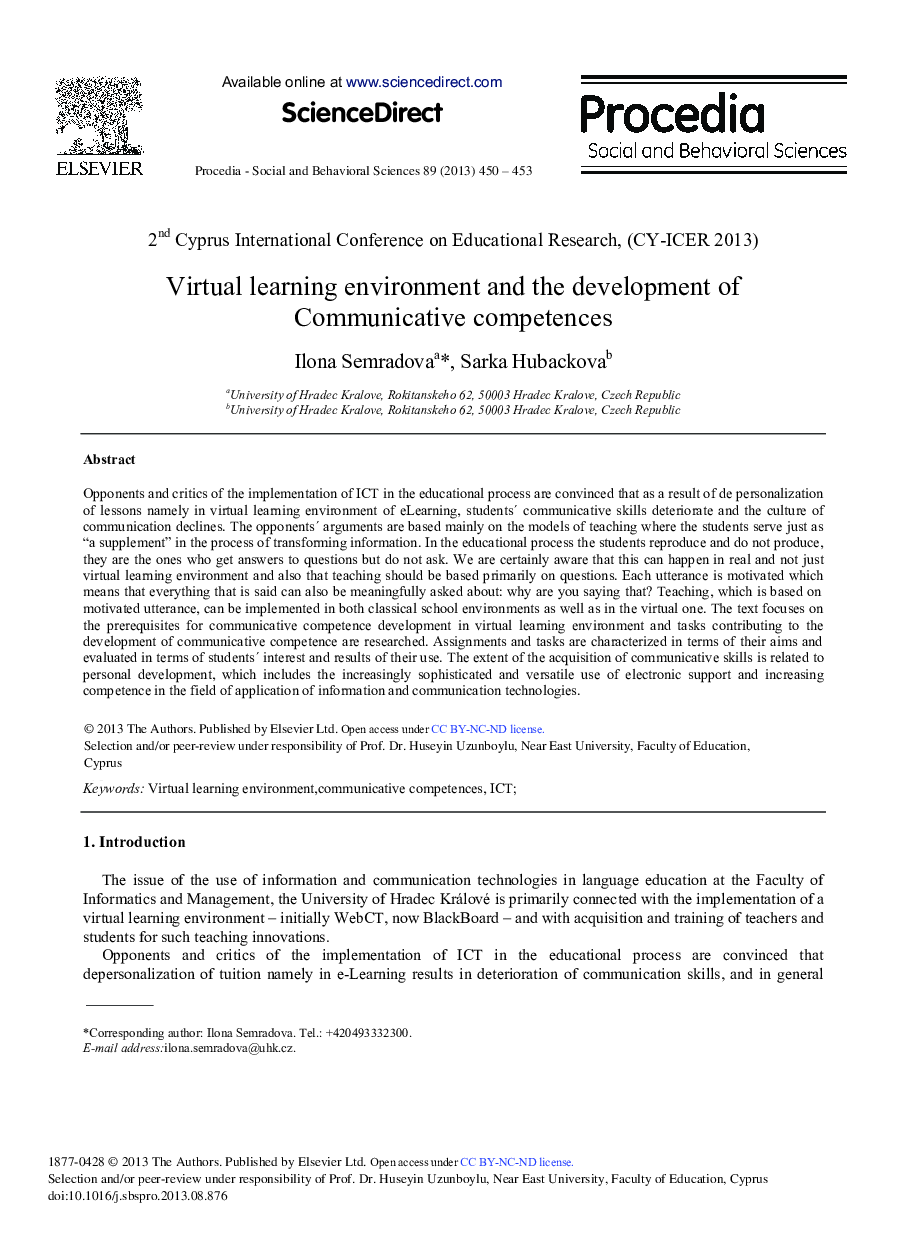| کد مقاله | کد نشریه | سال انتشار | مقاله انگلیسی | نسخه تمام متن |
|---|---|---|---|---|
| 1119356 | 1488470 | 2013 | 4 صفحه PDF | دانلود رایگان |

Opponents and critics of the implementation of ICT in the educational process are convinced that as a result of de personalization of lessons namely in virtual learning environment of eLearning, studentś communicative skills deteriorate and the culture of communication declines. The opponentś arguments are based mainly on the models of teaching where the students serve just as “a supplement” in the process of transforming information. In the educational process the students reproduce and do not produce, they are the ones who get answers to questions but do not ask. We are certainly aware that this can happen in real and not just virtual learning environment and also that teaching should be based primarily on questions. Each utterance is motivated which means that everything that is said can also be meaningfully asked about: why are you saying that? Teaching, which is based on motivated utterance, can be implemented in both classical school environments as well as in the virtual one. The text focuses on the prerequisites for communicative competence development in virtual learning environment and tasks contributing to the development of communicative competence are researched. Assignments and tasks are characterized in terms of their aims and evaluated in terms of studentś interest and results of their use. The extent of the acquisition of communicative skills is related to personal development, which includes the increasingly sophisticated and versatile use of electronic support and increasing competence in the field of application of information and communication technologies.
Journal: Procedia - Social and Behavioral Sciences - Volume 89, 10 October 2013, Pages 450-453